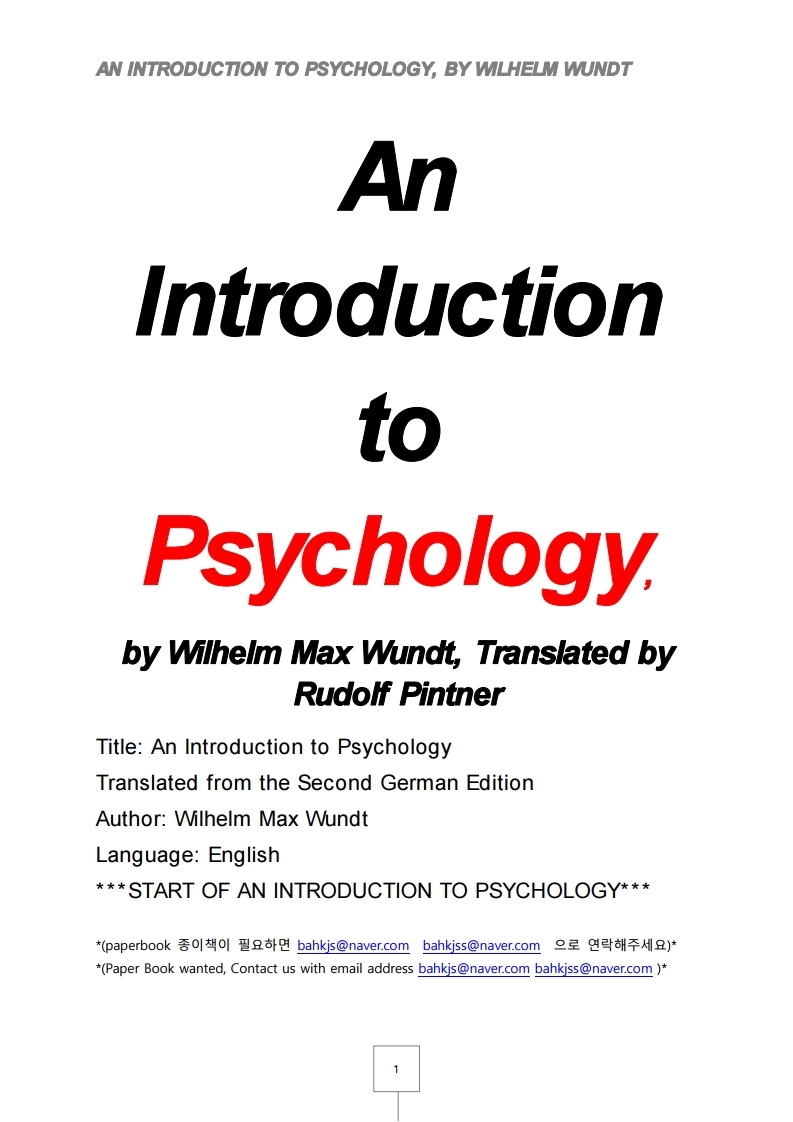심리학서설.AN INTRODUCTION TO PSYCHOLOGY, BY WILHELM WUNDT
CONTENTS
CHAPTER I
CONSCIOUSNESS AND ATTENTION
Psychology as a description of processes of
consciousness―The metronome―The rhythmical
disposition of consciousness―The scope of
consciousness―The threshold of consciousness―The
fixation- point and field of consciousness―The focus of
attention―The scope of attention―Apprehension and
apperception
CHAPTER II
THE ELEMENTS OF CONSCIOUSNESS
Psychical elements and compounds―Sensation and idea―
Memory images and perceptions―Quality and intensity of
sensations―Feelings―Difference between sensation and
feeling―The three pairs of feelings―The affective
process―Emotions and moods―Volitional processes―
Motives―Instinctive, voluntary, and discriminative actions―
The qualities of feelings―Feeling and apperception
CHAPTER III
ASSOCIATION
Associations and apperceptions―The fusion of tones into
clangs―Spatial and temporal perception―Assimilation and
dissimilation―Direct and reproduced forms of the same―
Complications―The recognition and cognition of objects―
Successive association―The so- called "feeling of
familiarity"―Secondary ideas―The affective processes in
recognition―The so- called states of consciousness in
forgetting, remembering, &c.―Memory associations
CHAPTER IV
APPERCEPTION
General characteristics of apperceptive combinations as
compared to associations―The aggregate idea and its
analysis―Concrete and abstract thought―Speech and
thought―Understanding and imagination―Examples of
primitive forms of speech in the language of primitive
races―Development of apperceptive combinations out of
associative ones―Inadequacy of the method of
introspection in dealing with the psychological problems of
thought―Psychology of language and race
CHAPTER V
THE LAWS OF PSYCHICAL LIFE
The relation between psychical and natural laws―The
psycho- physical individual―The question as to the
universal validity of the laws―The principle of creative
resultants―The principle of heterogony of ends―The
principle of conditioning relations―The principle of
intensifying contrasts―The psychological and physical
standpoints―Relation between physical and psychical
values―Physical and psychical elements―The nature of the
soul―Mythological views―The "substance" hypothesis―
The principle of the actuality of mind
도서소개
저자소개
목차소개





